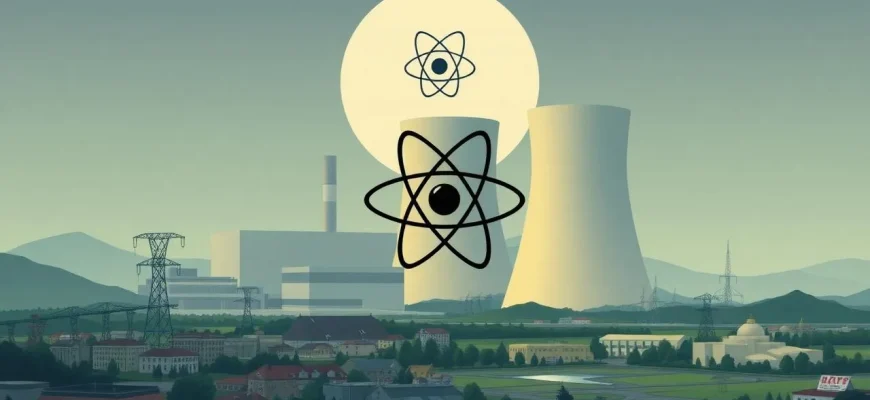Dive into the world of nuclear power with this curated selection of films that explore the complexities, dangers, and human stories surrounding atomic energy. From dramatic reenactments of real-life disasters to speculative fiction about potential catastrophes, these movies offer a thrilling look at what happens when the power of the atom is harnessed or goes awry. Whether you're a fan of historical dramas, suspenseful thrillers, or thought-provoking sci-fi, this list has something for everyone interested in the nuclear narrative.

The China Syndrome (1979)
Description: This film eerily predicted the Three Mile Island accident just weeks before it happened. It follows a TV news reporter and her cameraman who capture footage of a near-meltdown at a nuclear power plant, sparking a cover-up by the plant's management.
Fact: The film's title refers to a hypothetical scenario where a nuclear meltdown could theoretically bore a hole through the Earth to China. Jane Fonda, who stars in the film, was an outspoken critic of nuclear power.
 Watch Now
Watch Now 
The Atomic Cafe (1982)
Description: This documentary uses archival footage to satirize the American government's propaganda during the Cold War, including segments on nuclear power plants and the promotion of nuclear energy.
Fact: The film was nominated for an Academy Award for Best Documentary Feature.
 Watch Now
Watch Now 
The Peacemaker (1997)
Description: This action thriller follows a nuclear bomb stolen from a Russian facility, with scenes at a nuclear power plant. It explores the global implications of nuclear security.
Fact: The film was one of the first to use CGI to simulate a nuclear explosion.
 Watch Now
Watch Now 
The Sum of All Fears (2002)
Description: This adaptation of Tom Clancy's novel involves a nuclear bomb detonated at a football game, but the plot includes a nuclear power plant as part of the terrorist's plan to acquire nuclear material.
Fact: The film features a young Ben Affleck as Jack Ryan, before he became a household name.
 Watch Now
Watch Now 
K-19: The Widowmaker (2002)
Description: While not directly about a nuclear power plant, this film deals with the Soviet Union's first nuclear ballistic submarine, which faced a nuclear reactor meltdown. It's a tense drama about the crew's efforts to prevent a catastrophe.
Fact: The film was inspired by real events aboard the Soviet submarine K-
 Watch Now
Watch Now 
The Day After Tomorrow (2004)
Description: While primarily a disaster film about climate change, it includes a subplot where a nuclear power plant is threatened by extreme weather conditions, showcasing the vulnerability of such facilities.
Fact: The film was criticized for its scientific inaccuracies but praised for its special effects.
 Watch Now
Watch Now 
Chernobyl (2019)
Description: Although a miniseries, this HBO production is often considered a cinematic masterpiece. It provides a detailed and harrowing account of the 1986 Chernobyl disaster, focusing on the bravery of the workers and the cover-up by Soviet authorities.
Fact: The series was filmed in Lithuania, not far from the actual site of the disaster. It received widespread acclaim for its accuracy and emotional depth.
 Watch Now
Watch Now 
The Day After (1983)
Description: This made-for-TV movie depicts the aftermath of a nuclear war, including scenes at a nuclear power plant. It was one of the most-watched TV movies of all time and sparked a national conversation about nuclear war.
Fact: President Ronald Reagan watched the film and it influenced his views on nuclear disarmament.
 30 Days Free
30 Days Free 
Silkwood (1983)
Description: Based on the true story of Karen Silkwood, a worker at a nuclear facility who becomes an advocate for safety after discovering health hazards. The film delves into corporate cover-ups and the personal cost of whistleblowing.
Fact: Meryl Streep's performance earned her an Academy Award nomination for Best Actress.
 30 Days Free
30 Days Free 
Fail-Safe (1964)
Description: While primarily about a nuclear war scenario, the film includes a subplot involving a nuclear power plant, highlighting the interconnectedness of nuclear technology in military and civilian applications.
Fact: The film was remade for television in 2000 with George Clooney and Richard Dreyfuss.
 30 Days Free
30 Days Free 








